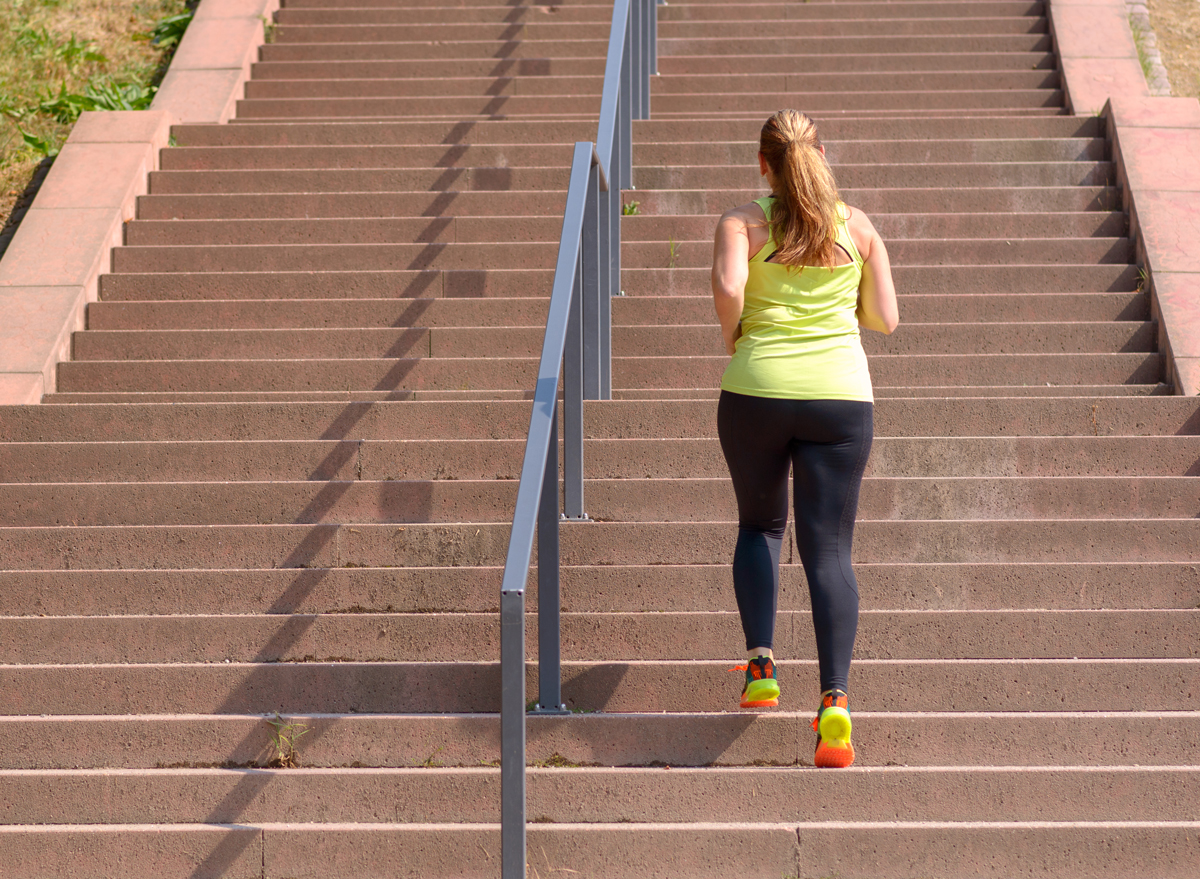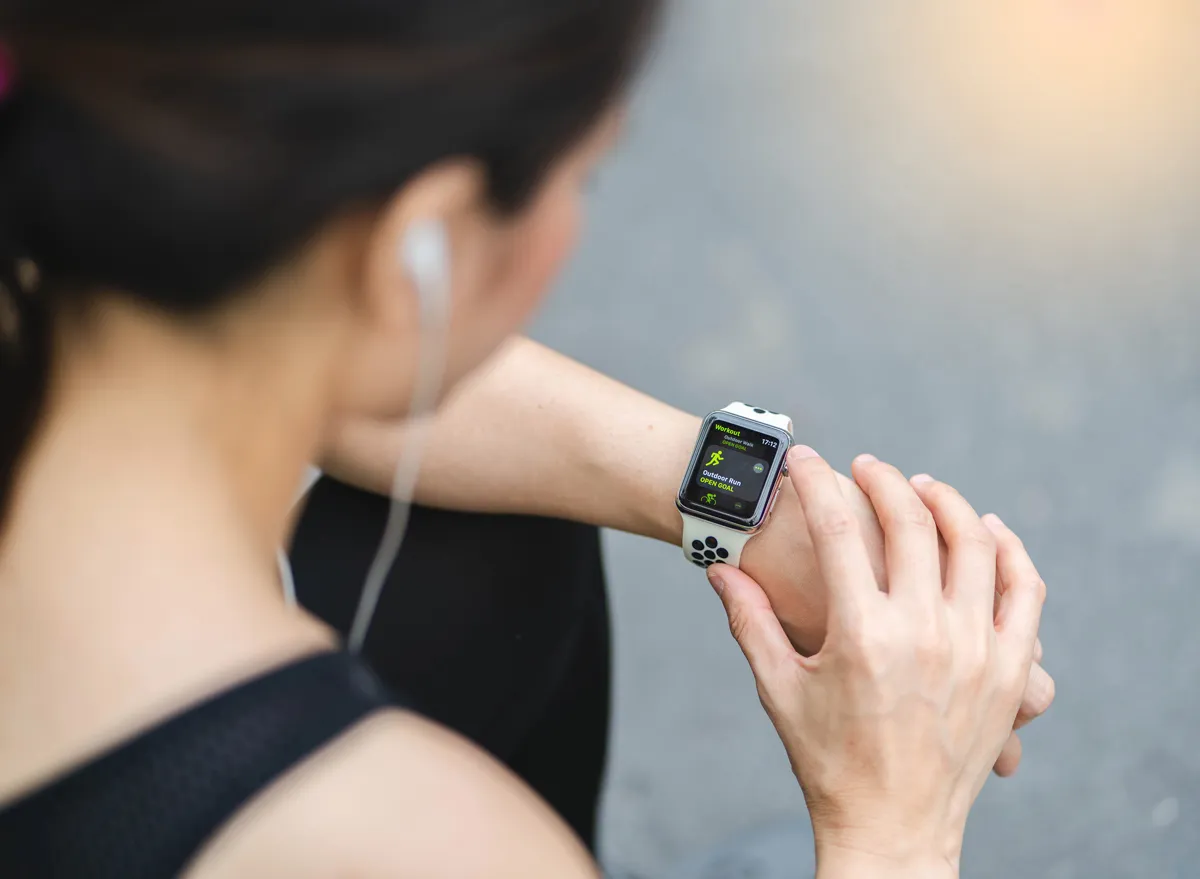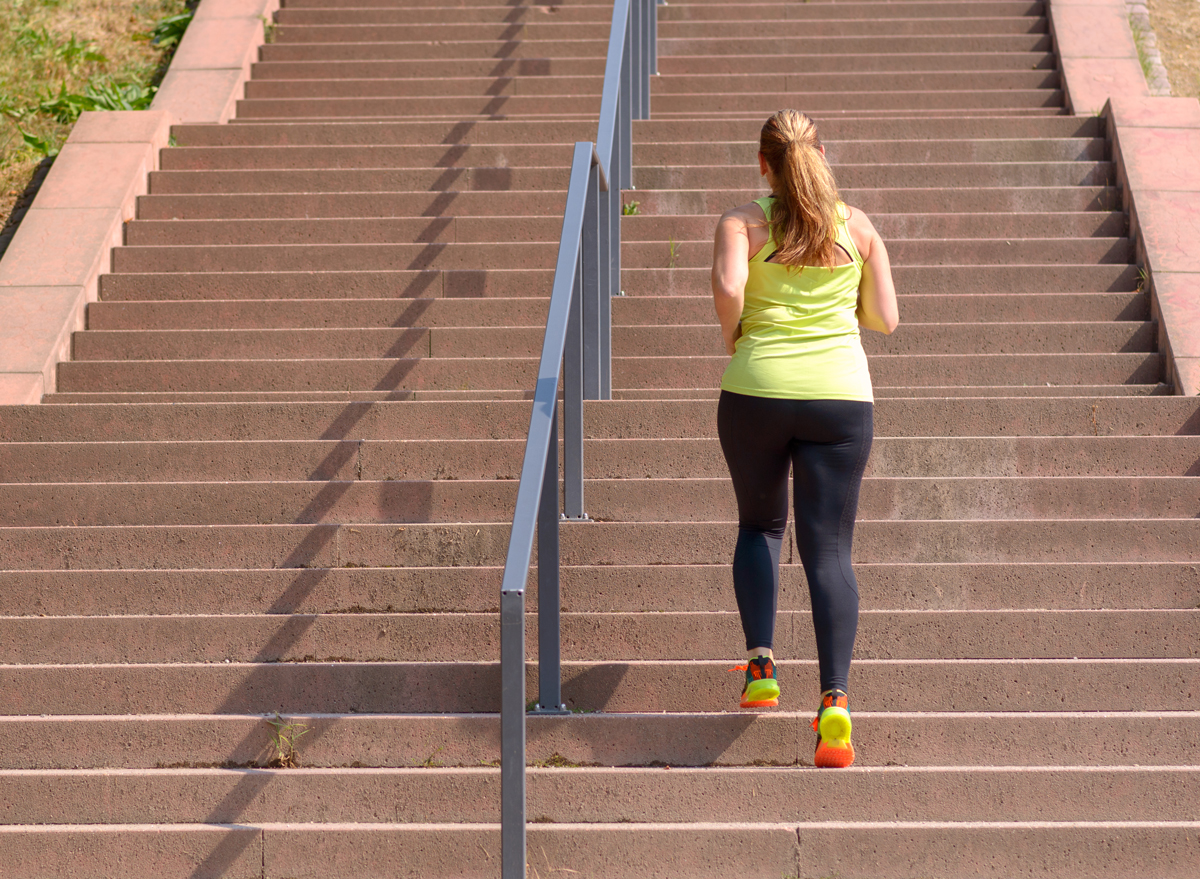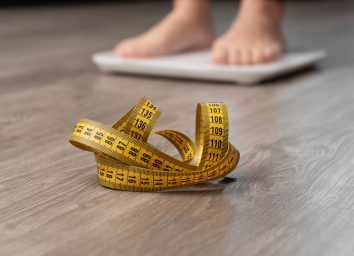5 New Weight Loss Facts You Need to Know Right Now, Science Says

Now that we're well past the New Year's resolution moment, enthusiasm about weight loss and healthier eating habits may be sinking to the bottom of the to-do list—or even dropping off completely. But recent research gives some insights into why it should be at the top of the priority list.
Here's a look at what researchers found about losing weight, and why it's more important than ever. Then, be sure to check out 15 Underrated Weight Loss Tips That Actually Work for ways you can shed pounds—fast!
Even low alcohol consumption could lead to weight gain.

The standard recommendation for alcohol consumption is one drink per day for women and two daily for men. But even that much could be tanking your weight-loss efforts, according to research presented at a recent meeting of the European Association for the Study of Obesity.
Researchers looked at health data and alcohol consumption of 26 million people in Korea and found a strong association between any level of drinking and weight gain. And the more people drank daily, the higher their odds of being overweight or obese. That's not just because of the extra calories, says Joshua Scott, M.D., primary care sports medicine physician at Cedars-Sinai Kerlan-Jobe Institute.
"Alcohol affects your liver's ability to process sugar, and makes it more difficult to absorb essential nutrients," he says. "It can also lower your ability to burn calories, so it's not just that alcohol has a surprising amount of calories on its own; it's actually blocking effective calorie burning."
Digital tools really do help you lose weight.

The breadth of digital options for tracking calories, activity, sleep, and even mood, can feel overwhelming, but a research review published in the journal Obesity suggests that choosing one or two that work for you can lead to greater weight loss.
Researchers looked at 39 studies focusing on weight tracking with devices like apps, electronic scales, wearables like Fitbit, and text messaging with weight-loss counselors. They found that when using these kinds of tools, 74% of participants reported weight loss.
"This may be because many digital tools are highly portable, and therefore allow the user to track any time of the day," said lead author Michele Patel, Ph.D., at Stanford University School of Medicine, in a press release. "Digital tools also may make tracking quicker and less burdensome to use."
Getting older doesn't have to lower your weight-loss success.

Although many people gain weight as they get older, that doesn't need to be an inevitable outcome of aging, according to a study in Clinical Endocrinology.
Researchers looked at weight-loss efforts in a hospital-based obesity program and compared the results for those over age 60 to those who were younger. They found no difference in the outcome when lifestyle changes (like healthy eating and exercise) were implemented.
"No matter what your age, approach weight loss or weight maintenance as something of a side effect," says Nicole Avena, Ph.D., professor of neuroscience at Mount Sinai School of Medicine, and author of "Why Diets Fail."
"Instead of having that as your main goal, focus instead on creating healthier habits like better nutrition and more movement, and it's likely you'll see weight loss as one of the results."
Skipping dinner may sabotage your weight loss goals.

Many studies have focused on the effects of skipping breakfast, and encouraged people to consume the majority of their calories at the beginning of the day. But a recent study published in the journal Nutrients suggests that it may be the last meal of the day, not the first, that has a bigger effect.
Looking at over 25,000 university students, researchers found that those who didn't have dinner showed a 10% weight gain compared to those who did. Study co-author Toshiki Moriyama, Ph.D., a professor in the Health and Counseling Center of Osaka University, says this might be because you tend to have more calories the next day as a result.
"The best tactic may be to simply spread your calories out throughout the day, rather than emphasizing breakfast as the main meal," he says.
Weight loss could help you fight COVID-19.

Previous research has connected excess weight and obesity to a range of health risks, from diabetes to some cancers, and recent studies have added COVID-19 to that list.
Research commentary in the November 2020 issue of Endocrinology suggests weight can raise inflammation levels, and subsequently, have negative effects on your immune and endocrine systems. Study co-author Kanakadurga Singer, M.D., associate professor and pediatric endocrinologist at the University of Michigan, says losing weight could help you lower these major risks.
"Bringing your weight down may not help you avoid COVID-19 completely, but it can certainly play a role in reducing the chances you'll have severe complications if you get it," she says.
And for more help to guide you on your weight-loss journey, don't miss these 200 Best Ever Weight Loss Tips!








